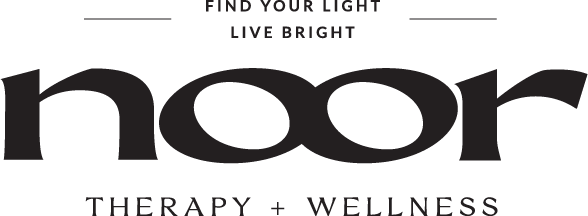New Year, Old News: Positive Psychology Encouragement
Like many of us, the turn of the year has come with lots of unexpected challenges and I know that I am not alone in starting off the new year a bit off kilter.
We are STILL living in unprecedented and uncertain times.
And what gives me comfort in the midst of uncertainty?
Positive psychology research of course!
I wrote and published this blog last July and interestingly (sadly?), it's still very relevant.
Martin Seligman’s PERMA model offers us a simple way to engage in activities each day that research shows can help us be resilient and thrive in the face of adversity. I hope the model below helps you build a foundation of strength and resilience despite the things that are outside of our control.
Each letter of the acronym PERMA stands for something that we can incorporate into our lives in easy and flexible ways.
P: Positive emotion
All emotions have developed as a way to help us navigate the world around us. Positive
emotions help us to broaden our thinking and build resources that we can come back to in the future.
When you experience daily joy (cat videos, playing with your children) or interest
(reading a new book, watching a documentary), those experiences are not only helping you in the moment but also boosting your immunity and buffering against the negative effects of difficult emotions later (like when we are watching the news or browsing through social media).
Positive emotions aren't luxuries. They are essential to navigating the difficult times. So think differently about that spontaneous laugh over something that happened in a meeting, that sense of pride over making dinner in 10 minutes, or the sense of care you feel when a friend checks in on you. Taking time to savor these moments is really critical for mental health.
E: Engagement
Being fully engaged in an activity brings about a state of “flow,” which is linked to increased
enjoyment, productivity, and learning. Who doesn’t need more of that while working from
home? It might be as simple as disconnecting from your phone and being fully present in a
hobby or activity that require your full attention.
It means taking breaks so that you can actually fully attend to what's in front of you and achieve experiences of flow. If you find yourself multitasking, it might be the right time to take a quick walk around the block so you can come back, prioritize, and attend to one thing at a time. That way, you can get into states of flow and the tasks at hand will be far less taxing and draining on you.
This is true for play and pleasure too. When you're fully engaged in playing with your dogs, children, or self, you increase your enjoyment which helps boost your overall wellbeing (back to #1).
R: Relationships
We are all being impacted by not being able to see our loved ones face-to-face, but investing in relationships at this time is critical. Talking with others lowers our stress, makes us feel connected, and increases our hope. Fatigued from online meeting and phone chats? Try writing letters to those you care about with a positive, uplifting quote. Schedule a weekly time to walk and talk with a friend (phone or outdoors) or cook dinner on the phone with someone who is also cooking their dinner. When times get tough, the tough get creative.
A friend of mine and I are doing a 90-day exercise program "together apart." I created a Google doc and we log our workouts in different colors and write notes back and forth. It's a small step but makes me feel connected to her and supported to take care of my physical health. Find what works with you.
M: Meaning
We are meaning-making animals. Viktor Frankl, Austrian doctor and Holocaust survivor, stated: “In some ways, suffering ceases to be suffering at the moment it finds a meaning.” While we may not know the larger meaning of this pandemic, we can develop a personal meaning that will help us reframe this time.
It can be as simple as, “This season is allowing me to slow down” or “I am learning more about myself and those I live with.”
Find meaning in the work you are doing - even if it's as basic as - working allows me to provide for myself and my family.
Whatever the meaning, it can give us a sense of grounding and purpose.
A: Accomplishment
This doesn’t refer to being hyper-productive every day. We need time for rest and recharging, especially when our brains are processing so much! This does, however, refer to having small tasks that you complete throughout the day. Crossing things off your to-do list can help you feel capable.
It is also important to set realistic goals for work as well as personal development and to stop and soak in a sense of pride when we do make small steps toward these goals. These small breaks will actually sustain our efforts in the long-run.
And accomplishment is not just about work. My partner recently cleared off a huge pile of papers from our dining table and was beaming. Celebrate all that you're doing.
- - - - - - - -
I will be back with a new series soon. Until then, be kind and gracious and compassionate yo yourselves and others.
References:
Csikszentmihalyi, M. (1990). Flow: The psychology of optimal experience. Harper & Row.
Frankl, V. E. (1984). Man’s search for meaning: An introduction to logotherapy. Simon &
Schuster.
Fredrickson, B. L. (2001). The role of positive emotions in positive psychology: The broaden
and-build theory of positive emotions. American Psychologist, 56(3), 218-226. doi:
10.1037/0003-066X.56.3.218
Seligman, M. E. (2011). Flourish. Random House Australia.
